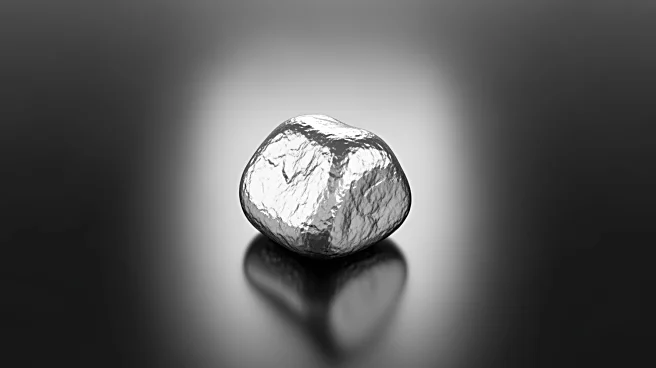Rapid Read • 9 min read
A recent study has highlighted the potential of biochar, a form of charcoal made from human waste, to alleviate global fertilizer shortages. Biochar is produced by treating organic matter at high temperatures, and it is commonly used as a soil fertilizer. The study suggests that biochar made from solid human excrement could supply up to 7% of the global phosphorus demand annually. Additionally, nutrients extracted from urine could enhance biochar, potentially providing 15% of phosphorus, 17% of nitrogen, and 25% of potassium needed each year. Unlike treated sewage sludge, which is controversial due to contaminants like microplastics and heavy metals, biochar can avoid these issues by separating waste at the source. The process also reduces the weight and volume of solid waste by up to 90%, improving transportation efficiency. Furthermore, biochar allows for nutrient adjustments tailored to specific crop needs, addressing issues like weed growth and eutrophication.
AD
The significance of this study lies in its potential to transform agricultural practices and reduce reliance on synthetic fertilizers, which are energy-intensive and environmentally harmful. Agriculture is responsible for 25% of global greenhouse gas emissions, and the demand for fertilizers has increased with the need to sustain food production. Synthetic fertilizers involve destructive processes, such as nitrogen fixation via the Haber process, phosphate rock strip mining, and potash mining, all contributing to environmental degradation. Biochar offers a sustainable alternative, promoting a circular economy where nutrients are recycled, reducing dependency on finite mineral resources. This could empower countries lacking significant reserves to produce food independently, addressing environmental justice and potentially mitigating climate migration driven by agricultural failures.
The study's findings suggest a shift towards a circular economy in agriculture, where countries can recycle nutrients and reduce reliance on imported fertilizers. This transition could have geopolitical implications, as nations with limited mineral resources might gain agricultural independence. The adoption of biochar technology could also lead to policy changes and investments in sustainable agricultural practices. Researchers and policymakers may explore further applications of biochar in different regions, considering its environmental and economic benefits. The study encourages a broader discussion on resource recovery and its role in the green transition.
The implications of biochar extend beyond agriculture, touching on economic and geopolitical aspects. As mineral resources become scarcer, countries without reserves could face dependency issues, impacting food security. Biochar offers a solution by enabling nutrient recycling, potentially empowering nations to produce food sustainably. This approach aligns with environmental justice goals, addressing disparities in resource access and mitigating climate migration. The study advocates for a future where agricultural practices are more sustainable and equitable, fostering resilience against environmental and geopolitical challenges.
AD
More Stories You Might Enjoy











